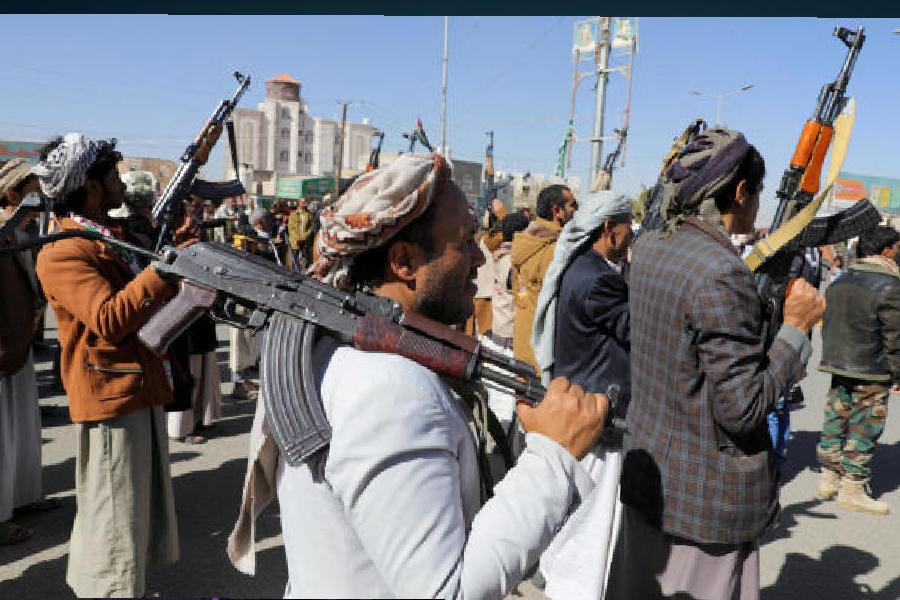Hamas’s attack on Israel in October 2023 was one of the biggest terrorist strikes since 9/11. It killed 1,200 people. It would be illuminating to analyse terrorist attacks using the Global Terrorism Index released by the Institute for Economics and Peace.
Incidentally, there is no universal definition of terrorism that has been agreed upon by the international community till now. The GTI ranks 163 countries on the basis of incidents of terrorism in those nations. A country’s annual GTI score is determined by using a unique scoring system. There are four elements that go into determining each nation’s annual score. They include the total number of terrorist-related deaths, injuries, incidents, and hostages taken in a given year. The following findings have been made based on the basis of the GTI’s recent report.
Deaths from terrorist attacks reached 8,352 in 2023, a 22% increase from 2017. Despite this increase, the number of deaths is still 23% lower than its peak in 2015. The number of terrorist incidents decreased. In 2023, there were 3,350 attacks, a 22% decrease from the previous year. But the data point out that terrorism is growing more deadly and concentrated.
In 2023, sub-Saharan Africa, the Middle East, North Africa, and South Asia accounted for 94% of all terrorism-related deaths, with sub-Saharan Africa alone contributing slightly less than 59% of all deaths. At the same time, the rate of terrorism in the West is at its lowest point in 15 years. There were 23 attacks reported in the West in 2023, a decrease from the peak of 176 attacks reported in 2017.
The biggest terrorist attack of 2023 happened in Israel. Despite this, Israel was not the nation most affected by terrorism. As of now, Burkina Faso tops the GTI rankings. This is the first time a nation other than Afghanistan or Iraq has topped the GTI in 13 years. Burkina Faso accounted for 25% of all terrorist deaths worldwide. The threat of terrorism has also surged in the neighbouring countries of Mali and Niger. The epicentre of terrorism has moved from the Middle East to the sub-Saharan African region of Central Sahel. A history of coups, shoddy governance, and shaky ties with neighbours are the primary causes of instability and terrorism in this region. Moreover, a strong correlation between organised crime and terrorism has also been unearthed. Attacks on gold mining operations, ransom demands, and kidnappings have increased manifold. Terrorist outfits collaborate with organised crime by taking advantage of shadowy industries, taxing illegal and unlicensed legal businesses, and offering protection to criminal organisations and the movement of illegal goods.
In general, violent conflict continues to be the main cause of terrorism. In 2023, countries experiencing violence accounted for over 90% of attacks and 98% of terrorist fatalities. Socio-economic variables like lower inequality-adjusted life expectancy, youth unemployment, and lack of trust in the media acted as causal factors for terrorism in the context of OECD countries. In non-OECD countries, these are replaced by internal conflict, tension with neighbouring countries, and corruption.
These findings give us a clear picture of terrorism that the world witnessed in 2023. The international community can effectively deal with terrorism by arriving at a consensus on the universal definition of terrorism. It can revisit the Comprehensive Convention on International Terrorism proposed by India at the United Nations General Assembly in 1996. Along with this, a quick end to the Israel-Hamas conflict is the need of the hour. The Financial Action Task Force is playing a key role when it comes to addressing terror financing and money laundering. Nations afflicted by terrorism need to enforce domestic, stringent legislations (India’s Prevention of Money Laundering Act is an example) in letter and spirit. The adoption of tailor-made strategies for counter-terrorist measures should be looked into too. For instance, the OECD countries need to focus more on addressing issues like inequality and unemployment, whereas, the non-OECD countries are required to tackle challenges like internal conflicts and corruption.
Aishwarya Harichandan is Assistant Professor, Indian Institute of Management Sirmaur











